To speak or not to speak - The adjudication debate
9-Oct-20064BR Editor Iwan Fox asks a few notable people whether adjudicators should speak or not at the conclusion of our most prestigious contests - the Open and Nationals.
It may be stretching a point a touch by suggesting there is a direct link between brass band adjudication and the American constitution's Fifth Amendment but, given the amount of opinion and debate concerning recent decisions about whether or not to speak at the end of brass band contests, perhaps that link isn't too tenuous at all.
'Taking the Fifth', as any fan of Perry Mason would know, is the USA's constitutional right for an individual not to give evidence that may or may not incriminate them. ‘Taking the Fifth', as any fan of brass band contesting has come to know, is usually the right for any adjudicator either to say nothing at all in respect to the decision they have just made, or to use obfuscation as a means of saying plenty, yet revealing very little in the process.
The furore surrounding the misunderstanding of the contents of the letter sent by the Association of Brass Band Adjudicators (ABBA) to the organisers of the Lower Section National Finals has brought the question of ‘The Fifth' very much back into the banding debating chamber. The letter outlined the decision of the ABBA to request that their members decline to speak at the end of the two ‘most prestigious' events in the banding calendar – the British Open and National Final at London.
Divided opinion
The decision, not surprisingly, has divided informed (some may say, ill-informed) opinion of a wide variety of interested parties – from editors and writers of media publications and websites, to conductors, players, supporters and even the adjudicators themselves.
Historically, the role of the adjudicator has not included the provision for them to elucidate to a contesting audience the reasons behind their decisions. This may have more to do with protection than anything else as, in the early years of the contesting scene, the manhandling of the judge after the announcement of the results was a rather common and unfortunate occurrence, including at least one being thrown into a nearby river and another having to be protected on the train journey home by members of the winning band!
Informed voice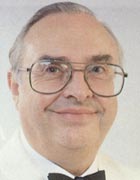 Dr. Roy Newsome who, in a distinguished career, has experienced contesting as a player, conductor, adjudicator and observer, is perhaps the most informed voice of all when discussing the historical perspective of the adjudicator's post-contest role.
Dr. Roy Newsome who, in a distinguished career, has experienced contesting as a player, conductor, adjudicator and observer, is perhaps the most informed voice of all when discussing the historical perspective of the adjudicator's post-contest role.
He commented: "In the early years, the adjudicator's job was primarily to sit in judgment and nothing more. Any debate, which at times did become quite fierce, over the decision he made usually occurred on the journey home from the contest, or from the publication of the adjudications made in the banding press the following week. They never, as far as I have been able to research, spoke at the end of a major contest."
That started to change, however, following the introduction of the ‘Area' contest structure under E. Vaughan Morris after World War II. Dr. Newsome continued: "Morris himself gave instructions to adjudicators that, if they were to speak, then they should make it brief and to the point and never give away the identity of the winning band."
Dr. Newsome also believes that the drive to try to get the judges to speak has primarily come from a much more aggressive media, rather than the general banding movement itself. In recent weeks, the editors of both British Bandsman and 4BarsRest, as well as respected writers in other publications, have rallied around their argument to request that the judges voices be heard and for them to explain their decisions at all levels of contesting.
Dr. Newsome added: "It is interesting to read the opinions of those leading the argument in the media, but the issue is much more complex than just wanting to hear a soundbite synopsis behind a given decision to help fill their column inches."
Complex issues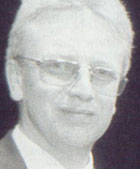 That issue of complexity is a point taken up by one of the leading brass band contest promoters, Philip Biggs, who has run the ‘Masters' at Cambridge since 1989. It has been an event that has gained a reputation for forward thinking and innovation yet surprisingly, the judges there have never been asked to speak. "The reason is simple," Philip Biggs told 4BR, "We have never had any clamour from our audience, the bands, players or conductors to do so. If in future there is evidence that it is wanted, then, as always at the Masters, we will look at the question in a balanced and informed way. Until that time, we see no reason to change."
That issue of complexity is a point taken up by one of the leading brass band contest promoters, Philip Biggs, who has run the ‘Masters' at Cambridge since 1989. It has been an event that has gained a reputation for forward thinking and innovation yet surprisingly, the judges there have never been asked to speak. "The reason is simple," Philip Biggs told 4BR, "We have never had any clamour from our audience, the bands, players or conductors to do so. If in future there is evidence that it is wanted, then, as always at the Masters, we will look at the question in a balanced and informed way. Until that time, we see no reason to change."
Philip also went on to address the other issues he felt were of importance: "I also believe that others reasons should be taken into account. Is it really fair to ask an adjudicator to speak to the audience for just a couple of minutes at most and make a detailed précis of a contest that has taken perhaps seven hours to judge? I personally cannot see what the process adds to what really is a clearly defined job description – the need to find which is the best band performance on the day."
The ABBA itself has discussed the matter on a number of occasions in recent years, leading to its decision this year concerning Birmingham and London. C. Brian Buckley is the organisation's Secretary and, in addition to being one of the movement's leading adjudicators, is no stranger to public speaking in his professional career as a consultant in the water industry.
Highest standards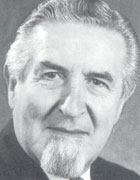 He feels that, at the very highest level, it has become inappropriate for judges to try to make concise and detailed synopses of performances, and that a slightly better approach to satisfy opinion on the matter may be sought elsewhere. "We are talking only about two of the most prestigious contests in the banding world, competitions that I believe should be regarded in the same way as the Cardiff Singer of the World and the Leeds International Piano competitions. The standards are that high," he said.
He feels that, at the very highest level, it has become inappropriate for judges to try to make concise and detailed synopses of performances, and that a slightly better approach to satisfy opinion on the matter may be sought elsewhere. "We are talking only about two of the most prestigious contests in the banding world, competitions that I believe should be regarded in the same way as the Cardiff Singer of the World and the Leeds International Piano competitions. The standards are that high," he said.
He believes a different approach may now more suitable, stating: "It would be inappropriate at this level to try to make a detailed, concise critique of the contest that will satisfy an audience, which may or may not agree with your decision anyway. With the advance of technology as it is today, perhaps the media could work in conjunction with the organisers and the judges to publish the adjudications of all the bands quickly after the event, as well as publishing an extended interview with them, after they have had time to change and freshen up after what can be a very pressurised and demanding job."
Bizarre comparison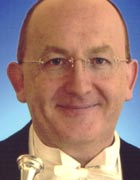 Equating the two most high profile contests to events such as Cardiff Singer of the World does not, however, sit easily with Steven Mead, one of the movement's finest euphonium players and someone who has gained considerable experience of performing, as well as judging, different musical genres all over the world. |
Equating the two most high profile contests to events such as Cardiff Singer of the World does not, however, sit easily with Steven Mead, one of the movement's finest euphonium players and someone who has gained considerable experience of performing, as well as judging, different musical genres all over the world. |
"I find that a rather bizarre comparison," he told 4BR, continuing, "These are truly international events, with huge resources and media coverage compared to our contests, and which attract the very best competitors from around the world to be judged in the open by a jury of up to a dozen members with world renowned expertise. Even at the British Open and National Final, the overall standard is nowhere as near as high, whilst the adjudicators are invariably chosen from a select home-grown list that seems not to change very much year in, year out."
He believes that the adjudicators should be well prepared and able to speak at the end of a major contest, concluding: "Experts should know what they are talking about and be able to explain themselves coherently and concisely by outlining the mains areas they took into consideration when making their decision. Perhaps if we really believe that the standard of an 18 or 20 band contest is that high, then we should copy the likes of Leeds and Cardiff, open up the adjudication process and welcome internationally renowned judges to adjudicate. There is an audience prize for best performer at the Cardiff event and the Chairman of the Jury Panel does speak at the conclusion of the preliminary rounds and the final."
Neutral view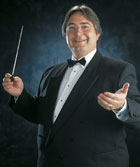
Conductors are often those who find the adjudication process the most mystifying of all, and both Robert Childs and John Roberts have experienced both success and disappointment over the years from the men in the box. Would having the decision explained to them from the stage have benefited them in any way though?
"I have a great respect for the job of the adjudicators," Dr. Childs told 4BR, adding, "They have an almost impossible job to do and can never be seen to get any decision absolutely right in the eyes of all players, conductors and supporters. Does having them try to explain their decisions in a short space of time to an audience change that? I don't think so, and it doesn't really add anything at the highest level to the process of making their final decision either. I have a fairly neutral view on the debate. It's not an exact science."
Short changed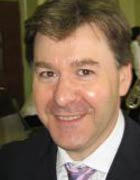 John Roberts, who spoke in favour at the ABBA meeting for the judges to speak, takes a slightly different viewpoint, though: "I can't see any reason why they cannot and should not speak at the end of a contest," he said, adding, "We have to understand that audiences are now so much better informed and expect much more for their money and support from what can be a long and tiring competition.
John Roberts, who spoke in favour at the ABBA meeting for the judges to speak, takes a slightly different viewpoint, though: "I can't see any reason why they cannot and should not speak at the end of a contest," he said, adding, "We have to understand that audiences are now so much better informed and expect much more for their money and support from what can be a long and tiring competition.
Why should they support an event if they feel short changed by the decision-making process and lack of explanation concerning the result? If contesting is to survive well into this century, a more enlightened and progressive approach to engaging the audience must be undertaken."
Contesting is a sport
As for the players themselves, Roger Webster perhaps sums up the feelings of many who, over the years, have either been elated or deflated by the results of the judge's deliberations: "Contesting is a sport and, as such, any explanation concerning why the judges decided on the winner over the rest won't really make any appreciable difference. 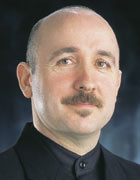 Trying to second-guess certain adjudicators' future opinions on the basis of what they said at the end of a previous contest is pointless. I would like to see a greater mix of adjudicators at our top events, but you just have to take the result, no matter who makes it and why, on the chin and move on."
Trying to second-guess certain adjudicators' future opinions on the basis of what they said at the end of a previous contest is pointless. I would like to see a greater mix of adjudicators at our top events, but you just have to take the result, no matter who makes it and why, on the chin and move on."
As you can see, when it comes to the question of adjudication and brass band contests, not even 150-odd years of history and in-depth appreciation of the American Constitution has yet been able to resolve the differences of opinion.
It would appear that not even the great Perry Mason could win his case for either side on this one.
Iwan Fox
This article first appeared in British Bandsman newspaper issue of 7th October.















